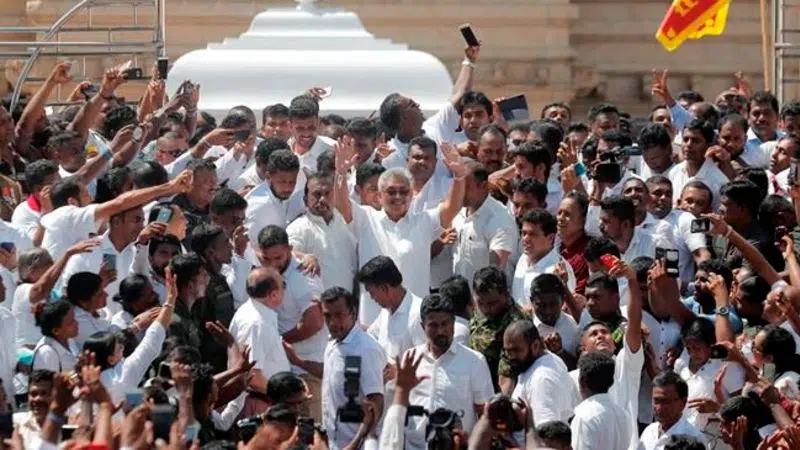
Gotabaya Rajapaksa sworn in as Sri Lanka’s new president
COLOMBO, Sri Lanka — Former defence secretary Gotabaya Rajapaksa was sworn in as Sri Lanka’s president on Monday and appealed to minority Tamils and Muslims who voted against him to give their support.
Rajapaksa, who is credited with helping end the country’s long civil war, comfortably won Saturday’s presidential election. But minorities feared his election because of allegations of human rights violations against him dating from the war.
Chief Justice Jayantha Jayasuriya administered the oath of office to Rajapaksa at the ancient Ruwanweli Seya Buddhist temple in north-central Sri Lanka.
“We knew from the beginning that our majority Sinhala people will be the biggest factor in our victory,” Rajapaksa said in an address to the nation.
